|
by Luv Mehta I do not like Fullmetal Alchemist Brotherhood. In fact, it's one of the most disappointing anime series I've ever seen. For non anime fans, this might be a "meh, whatever" kind of situation, and if you're one of them, what are you even doing reading this article? For the others, it's blasphemy. FMAB is the highest rated anime in MyAnimeList, which means that the majority of the world considers it to be the best anime they've ever seen. And I absolutely hate it. This will be an opinion the vast majority of the world will not share with me, and that's okay. This is just meant to give a voice to the few, but sizable minority that intensely disagree with its adulation. I promise you, each and every sentence in this post is something I very sincerely mean. Fullmetal Alchemist Brotherhood should have been everything the 2003 anime wasn't, because it was made with the original story of the original writer, and original equals best, right? Well, there's a slight problem. You see, Studio BONES misunderstood the manga completely when they first set out to adapt it. They looked at the first couple of chapters and concluded that it was about the benefits and horrors of science as told through the metaphor of alchemy, set against the backdrop of military conspiracy. And that's the thing. It wasn't. Hiromu Arakawa wanted a fun shounen story with a new type of twist in the kind of magic it used, so she made Fullmetal Alchemist the way it was. It was made, above all, to be fun, with just enough somber moments to be considered smart as well. BONES, however, messed up. They made an anime that progressively went darker, with the horrors the characters faced shaping them and breaking them, and used the science to draw a parallel to the law of karma, ultimately asking very hard questions about equality of action and reward. Even the end was daring, with most of the fighting being a backdrop to hard philosophical discussions, and the revelation of a world that used science instead of alchemy, with madmen operating the armies, that arrived at pretty much the same result. It's not very often that a mistake can end up so well made, though. A lot of it is owed to masterful direction, keeping the story light and airy, while progressively ratcheting up the tension, conspiracy and horrors. The show knew when to focus on which group of characters, how to structure episodes, and when to keep the tone light and when to plunge it into the deep end. Even Hiromu Arakawa approved of the direction FMA 2003 ultimately took. Brotherhood, on the other hand, is made with precisely the manga's directions in mind. Unfortunately, it's guided by extremely bad direction. Plots randomly stop and start in the middle of episodes. Most characters recover from their experiences too quickly, almost as if the creators want to get the character fluff out of the way and focus on action and comedy. And when it tries to be meaningful, all it does is force hackneyed dialogue into the mouths of characters and have others react with loud gasps of realization and change in their outlook because the plot demands it. The usual episodes people acknowledge are bad are the first couple of episodes, and while I won't say they're the worst episodes in the series, they are pretty bad compared to the 2003 anime. An example would be Nina's fate, with her introduced and offed in the same episode, and Ed resuming his shenanigans from the next episode onward. The most egregious example, however, is the death of Maes Hughes, who is bumped off extremely quickly, in overdramatic fashion, reaching for the receiver in a pool of blood as Mustang (who didn't even have that many scenes with Hughes in Brotherhood) screaming dramatically from a hanging receiver. Compare that to the previous anime, where they used a fair amount of buildup and pacing to show his doom, dedicating an entire episode to him, using camera angles to reveal his wound, and ending the episode with his funeral and nonstandard credits. Of course, the thing is, Brotherhood never really got better. It did get bigger, mode dramatic, more epic, but it never got rid of its problems. And a heavy part of that blame falls on the amateurish balance of tone. Studio BONES has had problems with tonal control sometimes, with RahXephon and Fullmetal Alchemist often suffering from it, but Brotherhood suffers the most. A great example to invoke would be the scene where Riza tells Ed about the horrors she had to commit in the military, immediately followed by nudging and teasing about Winry. A huge problem the show had was its unwillingness to treat death and murder with any sort of maturity. A common trait with a lot of anime is to outright condemn murder, even of incorrigible maniacal people with enough power to make everything worse if not stopped. Let's call it the Batman Stupidity (for obvious reasons). Anime like Monster, Trigun and even Dragon Ball Z have done much the same. While FMA 2003 ultimately took a hard line on last-resort killing as a necessity, even at great psychological cost to the main characters, FMAB both takes the Batman Stupidity to its extreme, and shows the opposite with such headache-inducing foolishness that it's hard to understand what the writers were thinking. Taking an example for the second case first, let us take the northern army headed by Olivier Armstrong, which seem to be the most insane and bloodthirsty bunch of jackasses I've ever seen in any anime. They have a general take-no-prisoners policy, choosing to slice and shoot and murder anyone on the other side of the battlefield. Most egregious example? The climactic war in the capital, where an army oblivious to the fact that they're betrayed tries to subdue any rebels. Now, Mustang and Hawkeye can wage a two-person nonviolent battle with ease, and the aftermath of the incident is clearly on their minds, what with their tries to get the soldiers on their side by feeding them stories about the Führer's death. Olivier's army? They keep up the murder with glee, only stopping at one point because the army they were about to murder stumbled upon Sloth and got to know the truth, which conveniently removed any reason to murder them as well. The first one, however, is even worse. Take the last fight between Mustang and Envy. Mustang, calm and collected, decides this is the time to make scary faces and get angry and resort to fiery torture. Troubling, yes, but let's not forget that Envy started a war that turned into a massacre. Envy is extremely dangerous and hard to kill, and if Envy goes free (I'm consciously avoiding pronouns here, if you can tell), Envy will wreck shit up. Because Envy is evil and needs to be disposed of, unlike the myriad soldiers martyred for no reason in the war so far. It's then, though, that Ed and Hawkeye have to get scared by Mustang's murder face and get him to stop. Er, seriously? How exactly do you plan to remove Envy, someone who clearly has no intention of turning good, someone who will destroy everything you're working for with pleasure, someone who has caused the deaths of millions? What good does your thou-shalt-not-kill preachiness do to Mustang, anyway, if you lose sight of the bigger picture and talk about abstracts and how he'll "lose himself"? Oh, so you want to kill Envy anyway, because you recognize that it would be convenient to do so. Do you think some hackneyed dialogue about how Envy is envious will get an age old chimera to commit suicide? ...oh. You do. And it does. Convenience, in fact, is a large part of the series. Take Envy being given away to the Xingese princess, because the story needs Envy away from the main story for a while (this no-pronoun thing is getting old), despite her being, well, a little kid with no proper sense. So, does it really surprise anyone when Envy fools her into going back? We need Envy in the scene towards the finale, of course, so the writers choose their own point of convenience to bring Envy back. And then, of course, there is the absolute absence of any thematic parallels in the anime. As stated before, the 2003 anime dealt with the seriousness of death, the madness of religious militancy inspired by godmen, the destructive potential of science, and the validity of the law of karma, all of which are sourced off of actual plotlines in the manga, and all of which are completely robbed of focus in Brotherhood, because who cares about analysis when Ed can make pillars shoot out of the grounds and walls for the sixtieth goddamn time? Even the themes unique to Brotherhood are horribly mishandled. Take the godchild, Truth, the representation of Faustian mistakes and the seeming cruelty of divinity. Of course, the existence of a godly figure immediately renders the theme of dichotomy of science and religion completely null and void, but let's look at the reason for its existence, which seems to be a bundle of contradictions. Why does it punish alchemists who seek the power of god? A good answer would be to dissuade them from reaching past their humanity, as a lesson to make them better alchemists through a harsher experience, by showing them how true the principle of equivalent exchange is. This is blatantly refuted, however, in two cases - when Ed digs up his mother's regenerated bones and discovers they were never hers in the first place (which implies the law of equivalent exchange is absolute hogwash, and they were maimed for nothing but Truth's pleasure) and when Mustang loses his eyesight despite being forced into a transmutation (which implies that it isn't a punishment as much as it's cold blooded torture). Of course, the final act of Edward sacrificing his own alchemic powers pleases Truth immensely as well, so the hypothesis of him steering alchemists to a better path also gets called into question, since his interpretation of "beating the truth" seems to be the realization that alchemy (the stand-in for science, lest we forget) is unnecessary to living a better life, which just comes out of nowhere, is of little importance to the plot (since it has basically ended by this point), and goes against everything the whole story has been struggling to establish, pretending that alchemy wasn't needed or necessary to solve the problems they had in the end simply because those problems were created by alchemy itself. If that isn't a horribly mangled and confused message, I don't know what is. I think the biggest reasons I have for disliking Brotherhood, however, are threefold, and they are all inexorably linked. Firstly, anime, in general, tend to be bold with endings. There's no compulsion to give a neat, happy ending to their stories if they don't want to. Even FMA 2003 decided to give us a bittersweet ending, very much in keeping with the progressively dark tone it had acquired by then. Brotherhood, on the other hand, actively strives to give us a happy ending, and actively twists plotlines to its benefit, as discussed above, and the only bittersweet element seems to be the fact that Edward lost his alchemic powers, which doesn't really hit us as hard. Which brings me to the second reason. Alchemy, here, seems to be little more than a typical shounen gimmick. It started off as science magic, sure, but the science seems to decrease and the magic seems to increase, the more the show progresses. There's simply no creativity at display, since all alchemy seems to be used for is some explosions and pop-out pillars, episode after episode. Even the passion for science, once exhibited by our titular brothers, seems to be muted. Instead of having alchemy influence their lives, their thoughts and their ideals, like in FMA 2003, here they simply act like two expert magicians who like punching and jumping a lot. Which brings me to my final and most serious beef with Brotherhood - the poor representation of the very subtitle in the show. Unlike FMA 2003, where the brothers seriously loved each other, and would die and even kill to save the other, there's extremely little focus on not only both characters, but their relationship as well. So when they enact their last sacrifices for each other, it doesn't feel earned. It doesn't feel natural. Maybe it's because we've spent the last 20-or-so episodes trudging through millions of characters and telegraphed heroic moments and painfully unnecessary sacrifices and stupid moral dilemmas and horrifically normalized moral decisions, but we simply didn't spend time with Ed and Al as actual, real life people, even before, to believe in their final decisions.
Unlike FMA 2003. It's a bit of a boring old refrain by now, isn't it, "unlike FMA 2003", "like in FMA 2003", and such? Problem is, the existence of one degrades the quality of the other quite a bit, to the extent that I don't know if I would have ignored all these flaws if I had seen FMAB first. Is FMAB bad? Objectively, no. It's a fun little romp with fun little powers and a couple of fun little moments, all set to awesome music and fluid animation. But then, that's the thing. It's very hard to enjoy both adaptations, with their wildly different origins and treatments of the story. And if you can, I'm quite envious. Guess envy became my downfall as well. (No seriously, how stupid was that Envy scene?) Cheers.
Follow us on Facebook and Instagram to be notified whenever we release new articles.
Do you use an RSS reader? Even better!
14 Comments
Ayy lmao
11/10/2015 23:40:06
10/10
Reply
Adi
18/10/2015 13:10:42
How about a Hetalia review? :D
Reply
sid20
24/10/2015 18:07:29
Great Review! you did a great job listing the problems with the story without being condescending.I hope you do more anime reviews.Maybe Cowboy Bebop or trigun perhaps?
Reply
Nicole
20/8/2020 20:43:15
But Riza did want to kill envy, she just didnt want mustang to do it
Reply
cptKamina
10/9/2020 09:49:27
Really funny how this dude completely misuneerstood the whole Envy vs Mustang fight.
Reply
J
9/11/2021 02:04:41
I think you've done what you're accusing the author of doing. You haven't put forward an argument and just said that the author didn't like it.
Reply
Lío
15/11/2020 08:58:57
I can tell you didn't have the series, stop being the elitist, you piece of stupid. I'm sure you're a meliodas fan
Reply
Pedro Mateo III
29/11/2020 03:19:55
you're right the anime is shit. episode after episode the alchemy was just repetitive, being just pillars, explosions, and swords just plain out boring. The concept couldve been executed better in so many ways!
Reply
Resembool
3/1/2021 14:32:41
Rewatched both shows and I have to bitterly agree with most of your points, especially how thematically weak Brotherhood is. Ive heard that undeveloped and rushed characters like Nina Tucker and Major Hughes in Brotherhood was because they assumed everyone already watched 2003 and didnt want to retread stuff 2003 already did well. Brotherhood skips several early chapters, such as the train hijacking or the mining town with Yoki. Brotherhood also rushes through a lot of the later chapters 2003 diverged from.
Reply
Katherine
2/3/2021 10:48:51
Weeeelllllll...I see most of your points, and the anime does have some faults(I LIKE sad endings. Call me sick), but it's still a pretty goodanime. Then, I guess I'm the one to talk considering I haven't seen the 2003 version. I feel like I don't really deserve a say on the matter, but despite it's mistakes, it still manages to be a pretty good anime. (I agree with you 100% on the envy complaints)
Reply
Big Nibba
20/3/2021 20:18:01
I agree with some points, but most of your opinion is trash.
Reply
17/10/2021 00:05:16
Oh you shut up, the anime was fantastic. You just wanna be different with all your alt accs agreeing with you. Weakkk🥱🥱
Reply
Rage
18/1/2022 17:24:28
I agree. Although there wwre my favorites, scar ling rebirth greed , teacher, alex. Mei..panda lol mustang...havoc ..i wanted lust got dayum.. but alphonse giving up on his body. That shit enraged me like great worthless future you stupid cunt enjoy staying up forever never eating shitting fucking. You stupid fuck boi. He dights good but ...eugh over it once its done NEXT anime
Reply
Lion
17/11/2023 14:01:23
I love how people just offend you or tell that you are wrong without giving any arguments to back their claims. Good for you not to give them second of your time.
Reply
Leave a Reply. |
Categories
All
Archives
December 2022
|
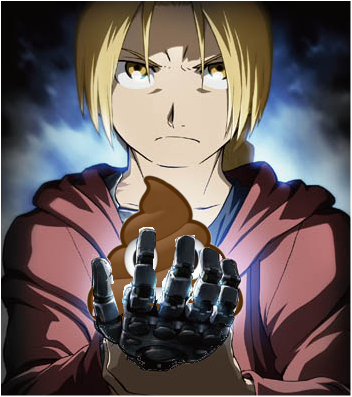
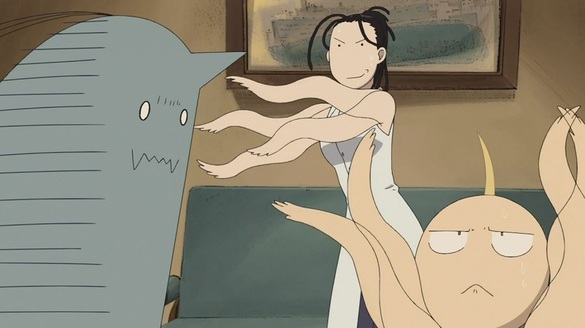
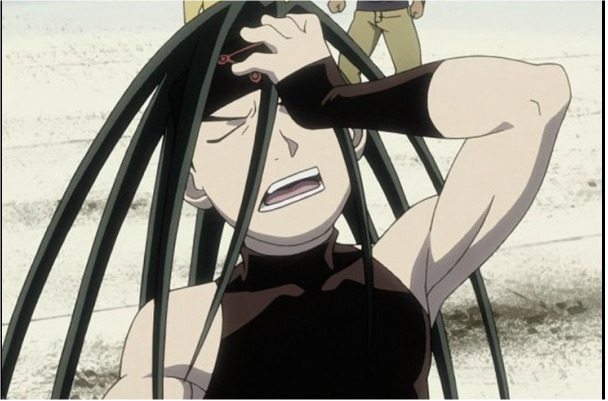
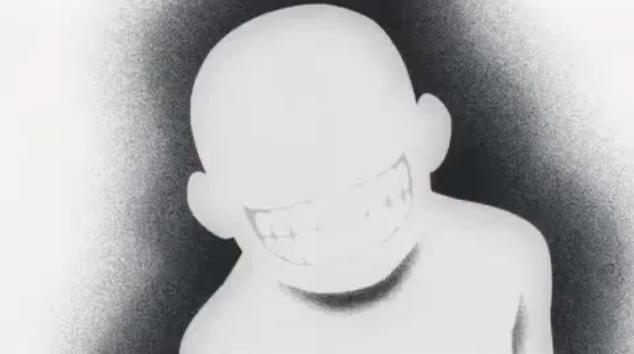
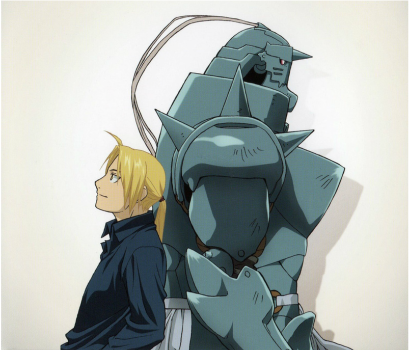
 RSS Feed
RSS Feed
